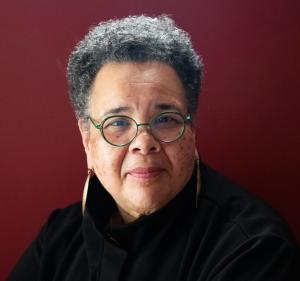Resources

If you teach long enough, you will teach a course that feels flat, has low morale, or even fails. While a totally ruined course is rare, there are moments when the sinking, the malaise—yours and that of the students, happens. We all know this experience.If you have never taught a course that has tanked, then you have likely been a student in a course that has. No real need to recount or describe all the ways a course can fail—the ways a course can “go south” are legion. The more important emphasis is to know that when a course is collapsing it can be rescued. When you feel the course sinking …...do not blame yourself.do not blame the students.do not blame the administration.do not blame your family.do not blame your pets.do not blame the moon phase.do not blame the state of the nation.do not blame the national economy.do not blame climate change.Blaming is ineffective. Finding fault, placing fault, shaming, guilting or scapegoating rarely corrects the problem. Sinking courses are not saved through blame.Do not ignore the situation or pretend that, without adjustment, it will mend. If you sense that there is trouble with the course, the students know there is trouble with the course. When you find yourself watching the clock during your own class session – this is a clue that something needs to be adjusted, altered, changed.Resist the impulse to knuckle down, grin and bear it.Resist the impulse to stay-the-course, stick to your guns!Resist the impulse to “right-fight” and believe whatever you planned, how you planned, is best and “be damned!” anyone who will not comply with your plans.Consider that rescuing a course might take a multi-pronged approach. The recovery of the course might need support from others. Don’t be a hero - please ask for help. If you feel as if the course is weak, ask for help. If you feel lost or disoriented, ask for help. If you do not know how you feel or what to do, ask for help.What help?Get a new perspective, fresh eyes, a more seasoned approach, an empathetic listener. Talk to colleagues. Talk with a trusted colleague at your school, or a trusted colleague beyond your school. You might talk just once, or you might talk several times. Describe the incident or incidents and ask them to listen to what might be changed to strengthen the course.Consider asking a trusted colleague to observe your teaching and then assist you with reflection. These talks are not for confessing to being an imposter. Resist reducing these conversations to disclosing your deep-seated anxieties about public performance (save that for your therapist). Use these conversations to troubleshoot, problem solve and strategize for better teaching and strengthening of your course design.Consider, at the beginning of the semester, creating a small reflection group of colleagues (3 or 4 people) for a semester long conversation so when the course feels like it is not going well you have established conversation partners. The group might be organized around studying teaching resources, together.Talk with a trusted student to get feedback. Talk with a small group of students and ask their opinion. Perhaps, take class time to ask the entire class for feedback and suggestions.Talk to human resource personnel, consult the faculty handbook, know your Title IX procedures. Sometimes bullying behaviors are the culprit in troubled classroom environments.What might be needed?Consider that you might need to recast elements of the syllabus. Consider creating different assignments, adjusting timelines, subtracting some readings or adding new kinds of readings. Add a field trip. Invite a guest speaker.Ask yourself about yourself. Are you too tired to teach well? Are you bored in your own course? Are you anxious? Are you distracted? Are you disappointed, grieving or just sad? Do you have an experience of belonging in your institution and in your own classroom? Your vibe radiates to the students and permeates all aspects of the course.Are the materials in the course too advanced for the students or too inconsequential? Are the materials culturally aligned and relevant to the students’ experiences and expectations? What story are you inviting the students into—is it a story of their imaginations and aspirations?What are the larger happenings of the school, community, region and country that are affecting your classroom? What would it mean to weave these happenings into the conversation?Perhaps it is the students - by which I mean – perhaps you do not know the students and their lives well enough. In what ways can you get better acquainted with your students. Do your students come to class tired after a long day of work? Are your morning students tired after having worked all night? Are they taking too many courses? If they are rested, are they hungry while in your class? Awareness of the conditions of your students might help with addressing some of the malaise.Do not be surprised when a course tanks. It happens to the best of teachers. When a course is “not going well,” do not abandon it or your students. Learn, by experience, how to adjust and adapt to create a meaningful experience for your learners and for yourself.

I’ve been neglecting my scholarship since March 2020. That, in case you don’t remember, is when the pandemic hit, sending faculty off into a mad scramble of Zoom, hybrid teaching, mental health emergencies, and social distancing. Once vaccines allowed us to stick our heads back out, we began working on tasks we had neglected during that mad scramble. And all the while, wave after wave of terrifying news coverage hit. George Floyd. The invasion of Ukraine. “Don’t say gay” laws. More talk about bathrooms than I would have thought possible. The seeming inevitability of another Trump/Biden election. Ever increasing temperatures, metaphorically and literally. Wildfires in the West, in Canada, and on Maui. Gaza. In the middle of all this, I started my sabbatical. That is an amazing privilege, but it put me face to face with my demons because I hadn’t even looked at my scholarship since March 2020 (except for the frantic days last summer when I wrote my sabbatical application). I couldn’t remember what I was supposed to be working on. And when I reread my application, I realized that I didn’t care. How could my research matter, to me or to others, in a world that increasingly literally is on fire? The state of our profession made it even harder for me to delve into my scholarship. Majors and programs are shrinking, budgets are being cut, departments are closing. Every week seems to bring more bad news. At the same time, most of us need to rethink our teaching and learn new pedagogical techniques because more and more students need more basic instruction than we are trained to provide. And we need to figure out how teach in the era of ChatGPT. So yeah. It’s a lot. Under these circumstances, how should we approach our scholarship? What can we learn, write, and do that will benefit us, our profession, and our students? It depends. Some of us do find meaning by delving deep into traditional scholarship of discovery, examining the arcana of Greek and Hebrew terms, exploring manuscript variations and intricate scholarly debates, even while recognizing that few will read our work. Some are nourished by the intellectual challenges in that work and emerge refreshed and intellectually stimulated. Others don’t, but find themselves constrained by circumstances. They need to do scholarship to earn promotion or tenure or to have a chance of landing a teaching position. These are all good reasons to dig into the obscure references and produce additional journal articles. But what about the rest of us? There seem to be plenty of faculty who, like me, don’t find meaning and purpose in the scholarship of discovery. And some of us, like me, are tenured. If we don’t have to publish another peer-reviewed article, what else might we reflect on and write about? There is an opportunity in this moment of crisis and uncertainty, an opportunity to change course and to engage in scholarship that feels more meaningful. What that means will be different for different people. An increasing number of faculty are doing work in social justice. Some are turning their attention to climate change and the despair it induces in many of us. I am staying closer to home, focusing on some of the challenges in my own profession: I’m thinking about how academics in the humanities can move forward and how we can avoid burnout. How can we learn to live well despite having less stability and more uncertainty than before? Can we find good ways to grieve for the careers we thought we would have and for the fields that we love and then find meaning and joy in teaching new populations of students instead? Philosophers and religious studies scholars have deep resources to draw on here, thousands of years of reflecting on happiness, meaning, and the human desire for stability and permanence in a world of rapid change. I’m diving in, reading about acceptance, grief, and hope in Buddhist and Christian texts, in psychological research, and even in self-help books. And I find inspiration in an unexpected line from a psychology journal article: “Hope can be practiced by locating a deep desire, value, or commitment and taking a step toward it.”[i] For so long, I’ve thought that hope for our profession required believing that the numbers of majors, funding, and programs will increase again. That would be lovely, of course. But this line points towards a different understanding: Hope is the practice of teaching and working in a way that expresses our core values and commitments and continuing to do so even though the situation is changing. It is not all that I wanted, but it makes my work feel meaningful and important again. That may be enough. Notes [i] The quote is from James L. Griffith’s “Hope Modules.” He is paraphrasing Kaethe Weingarten’s “Hope in a Time of Global Despair.” (I have not yet read Weingarten’s article yet, but it’s next on my list).